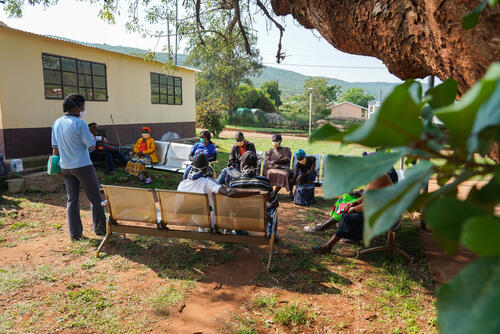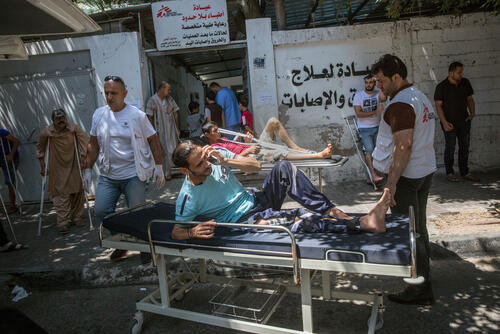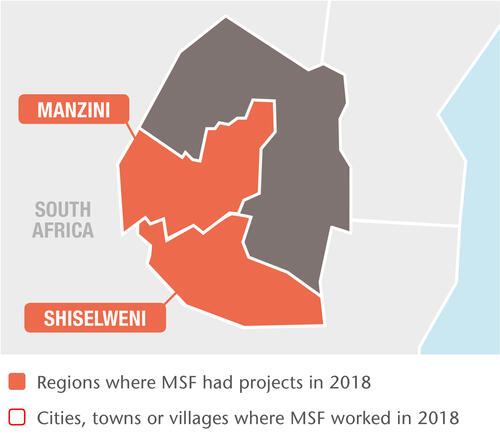
6,230
6,23
610
61
580
58
Almost one-third of adults in Eswatini are HIV positive,<a href="https://phia.icap.columbia.edu/wp-content/uploads/2017/11/Swaziland_new.v8.pdf">Swaziland HIV Incidence Survey 2 (SHIMS-2), 2016/2017; Mbabane, Eswatini</a> which also increases their vulnerability to TB and other infections. In this context, Médecins Sans Frontières continued to assist the Ministry of Health with prevention and care in Shiselweni region in 2018, while handing over some long-term activities to the ministry and partner organisations, such as our project in Manzini region, which began as an emergency intervention in 2010.
Our emphasis in Eswatini is on community-based, patient-centred models of care and what is known as a ‘test and start’ strategy, which involves initiating antiretroviral (ARV) treatment at the time of diagnosis, irrespective of clinical criteria.
We offer community-based testing for HIV and TB, oral HIV self-testing for hard-to-reach groups such as sex workers and men who have sex with men, and pre-exposure prophylaxis (PrEP) for people at increased risk of HIV infection. A total of 5,296 people accessed HIV self-testing and 468 were initiated on PrEP in 2018.
Our teams provide specialised, integrated care for people living with HIV, including second- and third-line ARV therapy for those whose previous treatment has failed to work, and point-of-care screening and treatment for other diseases, such as cervical cancer, drug-resistant TB and cryptococcal meningitis, which commonly occur in people living with HIV.
In 2018, 1,610 women were screened for cervical cancer, of whom 8 per cent tested positive. Of these, 67 per cent were treated. We provided prophylactic treatment for cryptococcal meningitis to 26 patients.

















